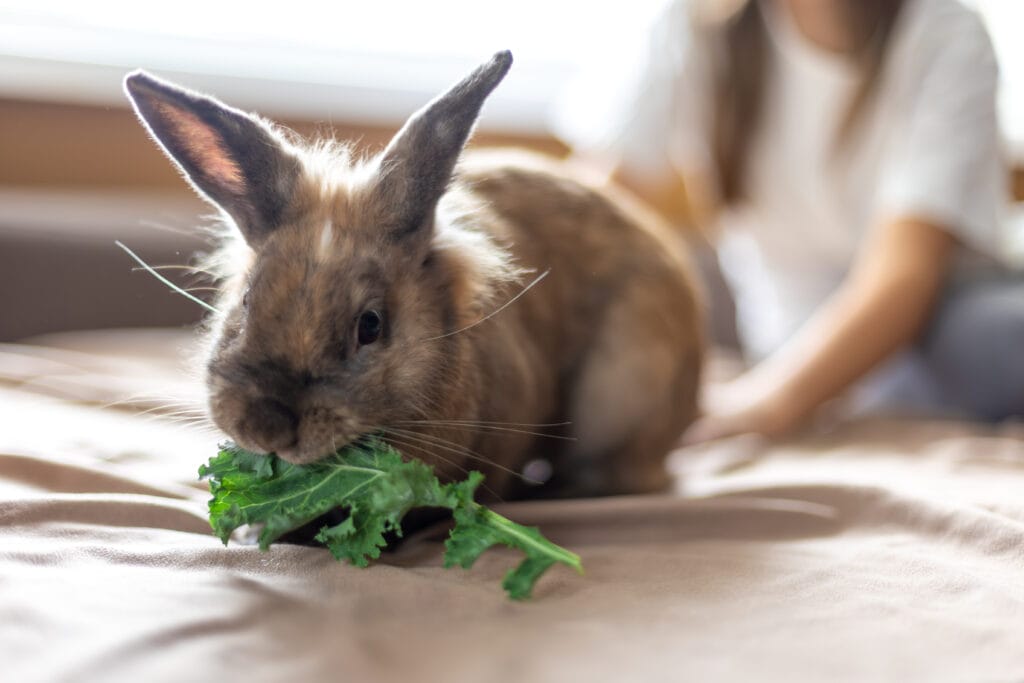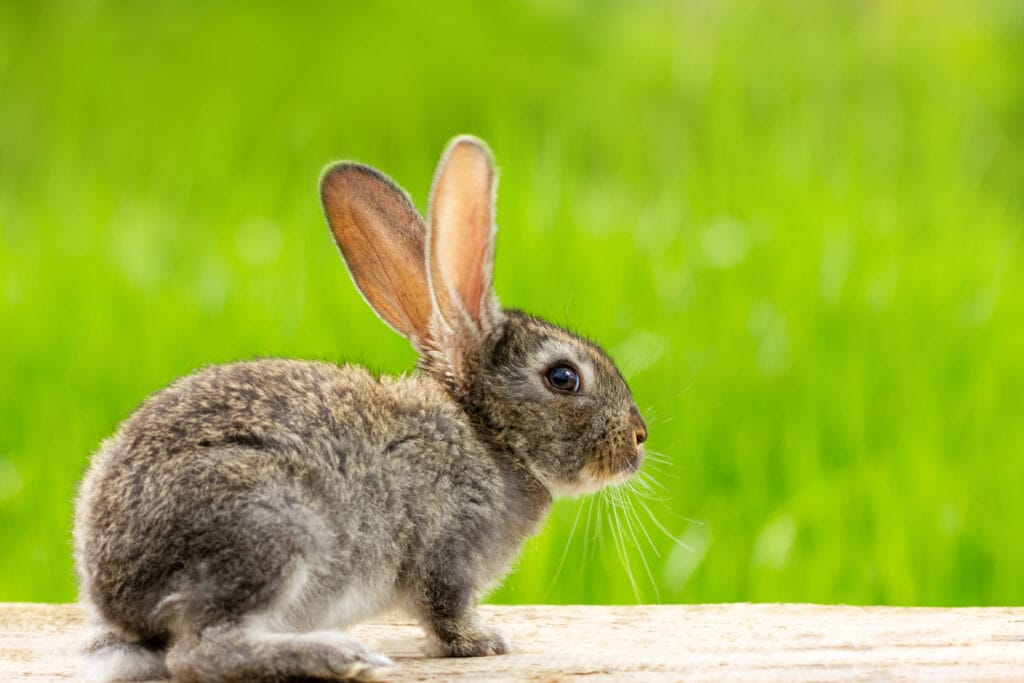If you’re a rabbit owner, you know that their diet significantly affects their health and happiness. As herbivores, rabbits need a fiber-rich diet, primarily from hay, fresh vegetables, and occasional fruits. But when it comes to specific vegetables, such as cucumbers, you might wonder: Can bunnies eat cucumbers?
In this post, we’ll answer this common question and dive deep into whether cucumbers are a healthy treat for your bunny. We’ll also explore their nutritional benefits, potential risks, and how to safely incorporate cucumbers into your rabbit’s diet.
By the end of this guide, you’ll have all the information you need to make an informed decision about feeding cucumbers to your rabbit!
Can Bunnies Eat Cucumbers?
Bunnies can eat cucumbers, but they should be offered in moderation, like any food. Cucumbers are a safe, hydrating snack for rabbits, and many bunnies enjoy the crunch and freshness they provide. However, there are essential factors to consider before offering cucumbers to your rabbit.
Why Cucumbers Are Safe for Rabbits:
- Hydration: Cucumbers are high in water content (around 96%), which can help keep your bunny hydrated, especially in the warmer months.
- Low in Calories: Cucumbers are low in calories, making them a great snack option for bunnies without contributing to weight gain.
- High in Fiber: Cucumbers contain a small amount of fiber, essential for digestive health. However, they should never replace hay or other high-fiber foods.
Despite these benefits, cucumbers should only be fed as an occasional treat. Their high water content can cause digestive upset if given in large amounts. Too much of this vegetable can displace more essential foods from your rabbit’s diet.
Nutritional Benefits of Cucumbers for Rabbits
Cucumbers offer some key nutritional benefits for rabbits when fed in moderation:
- Water: Cucumbers’ high water content helps keep rabbits hydrated, especially on hot days when they may be at risk of dehydration.
- Low Sugar Content: Cucumbers are low in sugar, making them a good choice for rabbits prone to obesity or diabetes. Unlike many fruits, cucumbers won’t cause blood sugar spikes.
- Rich in Vitamins and Minerals:
- Vitamin K: Important for bone health and proper clotting.
- Vitamin C: While rabbits can make vitamin C, offering cucumbers provides a small supplemental source.
- Potassium: Helps maintain proper muscle and nerve function.
- Antioxidants: Cucumbers contain antioxidants, which help protect against oxidative stress and support a rabbit’s immune system.
How Much Cucumber Can You Feed Your Bunny?
While cucumbers are safe for rabbits, portion control is key. Too much cucumber can cause digestive issues such as diarrhea or bloating due to its high water content. Here’s how to properly serve cucumbers:
- Small Amounts: Limit cucumber portions to 1-2 slices per serving. This will give your bunny the hydrating benefits without overwhelming its digestive system.
- Frequency: Cucumbers should be given 1-2 times weekly as an occasional treat. Their primary diet should consist of hay, fresh leafy greens, and limited pellets and fruit.
- Avoid Seeds and Skin: While cucumber skin is generally safe, it may be difficult for some rabbits to digest, especially if it is not organic. Peel the cucumber to make it easier for your bunny to digest. Remove any seeds as well, as they can cause digestive distress.

Potential Risks of Feeding Cucumbers to Rabbits
While cucumbers are generally safe for rabbits, there are a few risks and concerns to be aware of:
1. Digestive Upset
- Cucumbers are high in water, and when consumed in excess, they can cause diarrhea, bloating, or an upset stomach in rabbits. Always start with small amounts and monitor your bunny’s reaction.
2. Pesticides
- Cucumbers are often treated with pesticides during cultivation. If you’re feeding cucumbers to your bunny, wash them thoroughly or use organic cucumbers. The skin can also hold pesticides, so it’s better to peel them if they’re not organic.
3. Too Much Moisture
- Cucumbers are high in moisture, and while this is great for hydration, it should not replace your rabbit’s primary water source, which should always be fresh, clean water. Overhydration can lead to imbalances in your rabbit’s gut, which may lead to problems like diarrhea.
4. Displacement of Nutritional Foods
- If you give your rabbit too many cucumbers, they may ignore more essential foods like hay and leafy greens. Ensure that cucumbers are just a small part of their diet, with hay remaining the most critical component.
Can Rabbits Eat Cucumber Skin and Seeds?
When offering cucumbers to your bunny, consider the following:
- Cucumber Skin: While the skin is generally safe, it can be harder for some rabbits to digest. Suppose the cucumber is not organic, or you’re unsure about its pesticide content. In that case, peeling the cucumber before offering it to your bunny is best.
- Cucumber Seeds: Cucumber seeds are not toxic to rabbits but can cause digestive issues if consumed in large quantities. Always remove the seeds before feeding cucumbers to your rabbit to avoid any digestive upset.
Alternative Vegetables for Rabbits
While cucumbers are a great occasional treat, rabbits should primarily consume hay and leafy greens for optimal health. Here are some other safe vegetables to feed your bunny:
- Leafy Greens: Romaine lettuce, kale, dandelion greens, and cilantro are excellent sources of fiber and nutrients for your bunny.
- Carrots: Rich in beta-carotene, carrots are a great treat, but due to their high sugar content, they should be fed sparingly.
- Bell Peppers: Full of vitamin C, bell peppers are a colorful and tasty treat for your rabbit.
- Broccoli: High in fiber and vitamin C, broccoli is safe for rabbits in small amounts.
- Zucchini: Another watery vegetable, zucchini is great for hydration and provides a variety of vitamins and minerals.
- Parsley: A nutrient-dense green herb, parsley can be a great moderation addition to your bunny’s diet.
Conclusion: Can Bunnies Eat Cucumbers?
In conclusion, bunnies can eat cucumbers, but they should be fed in moderation. Cucumbers are a hydrating, low-calorie snack that can provide some essential vitamins and fiber. Still, they should never replace the main components of a rabbit’s diet, primarily hay and leafy greens.
Remember to:
- Offer cucumbers in small portions (1-2 slices).
- Always wash cucumbers thoroughly or peel them if they are not organic.
- Monitor your rabbit’s reaction to ensure they don’t experience any digestive upset.
- Use cucumbers as an occasional treat, and keep hay as the core of your bunny’s diet.
Cucumbers can be a healthy and refreshing addition to your bunny’s diet by following these simple guidelines. They will keep your bunny hydrated and happy while maintaining a balanced, nutritious diet.


